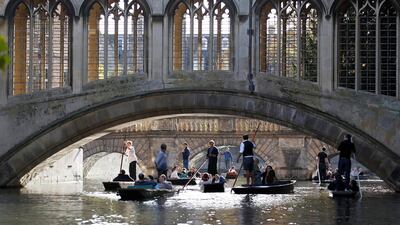Cambridge University is to investigate how it profited from slavery in the past and review its links to the Atlantic slave trade.
A two-year inquiry will look to establish whether one of the world’s oldest universities reinforced ideas about race prominent between the 18th and 20th centuries now “repugnant in the 21st century”.
Investigations will be made on whether Cambridge University benefited financially, or through other gifts, that perpetuated slavery.
“There is growing public and academic interest in the links between the older British universities and the slave trade, and it is only right that Cambridge should look into its own exposure to the profits of coerced labour during the colonial period,” said vice chancellor Stephen Toope.
“We cannot change the past, but nor should we seek to hide from it. I hope this process will help the university understand and acknowledge its role during that dark phase of human history.”
The number of activists and student protests calling on universities to acknowledge their links to the slave trade has gained momentum over recent years.
In September 2018, Glasgow University said it would undertake “reparative justice” after discovering that it had benefited between £16.7 million (Dh79.8m) and £198m during the 18th and 19th centuries (in present-day value) through bursaries, gifts and donations.
It also discovered that more than 100 students who attended the university between 1727 and 1838 were the sons of slave-owning planters and merchants.
Students in the US have protested in recent years hoping that universities will address their historical links to slavery.
Georgetown University student protests in 2015 prompted changes to two residence halls named after two men involved in the sale of slaves.
The university announced a year later that it would start to offer admission advantages to the descendants of the 272 slaves who were sold to Louisiana plantations in 1838 to fund Georgetown University.
Other protests against statues commemorating slave owners have taken place at Yale University, the University of Kentucky and the University of North Carolina in the past three years.

